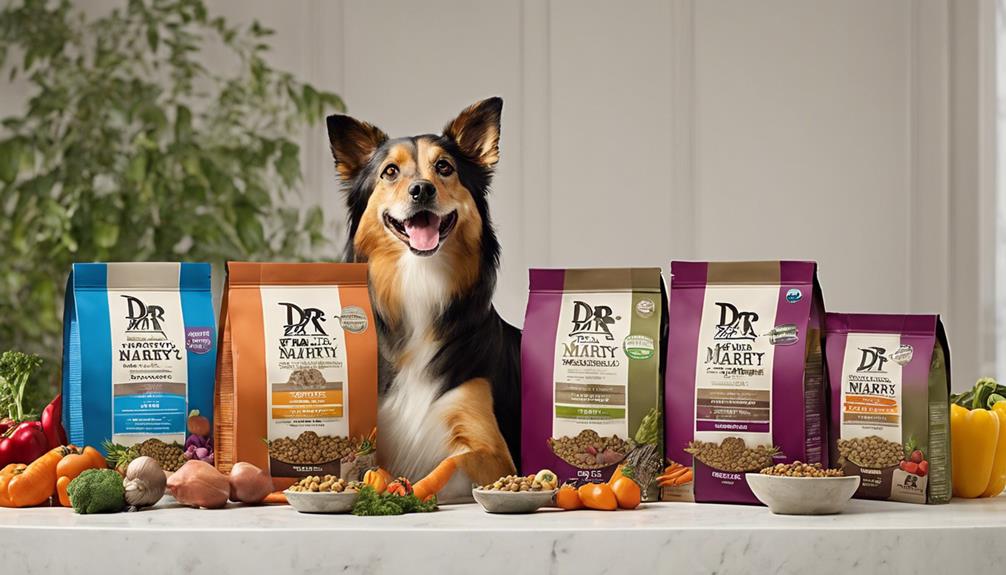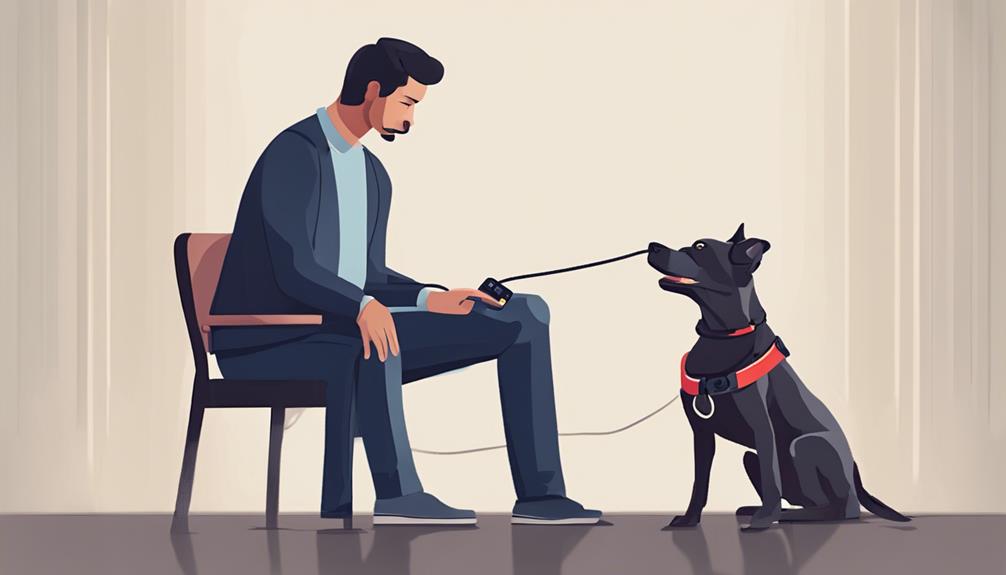Dogs are highly attuned to human laughter and can distinguish positive emotional tones, which helps them feel more connected and loved. When they hear laughter, they interpret it as a sign of happiness and safety, often responding with wagging tails or playful behaviors. This emotional exchange can reduce feelings of loneliness, strengthening your bond. If you want to see how laughter can deepen your connection and fight loneliness, there’s more to discover ahead.
Key Takeaways
- Dogs can recognize and respond to human laughter, perceiving it as a positive social signal that fosters emotional connection.
- Laughter signals happiness and safety, helping to reduce feelings of loneliness for both humans and dogs.
- Responding to laughter with behaviors like wagging or cuddling strengthens the emotional bond, providing mutual comfort.
- Visual and auditory cues during laughter enhance dogs’ emotional contagion, making them feel more engaged and less lonely.
- Shared positive moments like laughter create a sense of companionship, potentially alleviating loneliness for both humans and dogs.

Recent studies show that dogs can distinguish between different human vocal tones, especially laughter. This ability isn’t just about hearing sounds; it’s about understanding the emotional context behind them. Dogs are incredibly attuned to our cues—our facial expressions, body language, and, importantly, our voices. When you laugh, your dog perceives that as a positive, engaging signal, and they often respond accordingly. This response hinges on their understanding of canine social cues—subtle signals that let them interpret your mood and intentions. Your laughter isn’t just an amusing sound; it acts as a social cue that communicates happiness and safety. Dogs pick up on these cues quickly because they’ve evolved to read human behavior closely, using their keen senses to connect with you emotionally.
A fascinating aspect of this interaction is how their visual perception helps them interpret and respond to your laughter, further strengthening the bond between you. The concept of emotional contagion plays a significant role here. It’s the phenomenon where one person’s emotional state influences another’s, almost like a ripple effect. When you laugh, your dog doesn’t simply hear the sound; they feel the vibe you’re radiating. If you’re genuinely happy and laugh sincerely, your dog detects that joy and often mirrors your excitement—wagging tails, playful antics, or even a gentle nuzzle. This emotional contagion isn’t just about mimicry; it’s about shared emotional experience. Your dog experiences your laughter as an extension of your mood, which can deepen your bond and create a sense of mutual happiness. When your dog responds positively to your laughter, it’s evidence that they’re not just reacting to a sound but are also emotionally engaged.
Frequently Asked Questions
Can Dogs Distinguish Between Different Human Emotions Through Laughter?
You might wonder if dogs can tell human emotions through laughter. The answer is yes; dogs are skilled at emotional recognition, especially through vocal cues like tone, pitch, and rhythm. When you laugh, your dog notices these vocal cues and responds accordingly, often showing signs of happiness or comfort. Their ability to interpret your laughter helps strengthen your bond and makes them more attuned to your emotional states.
Do Certain Laughter Tones Have a Stronger Calming Effect on Dogs?
Certain laughter tones can have a stronger calming effect on dogs, especially when the laughter has a consistent tone variability and appropriate laughter frequency. You’ll notice your dog responds better to gentle, warm laughs rather than high-pitched or erratic sounds. By paying attention to the tone variability and maintaining a steady laughter frequency, you can create a soothing environment that helps your dog feel more relaxed and secure.
How Does a Dog’S Personality Influence Its Response to Laughter?
Your dog’s personality traits greatly influence its response to laughter, causing response variability. For example, an extroverted dog may enthusiastically join in or seek your attention, while a shy dog might withdraw or stay cautious. Understanding these traits helps you interpret their reactions better. By observing your dog’s unique personality, you can tailor your interactions, making laughter a more effective way to bond and positively influence their emotional well-being.
Can Laughter Therapy Improve Dogs’ Overall Well-Being?
Laughter therapy can boost a dog’s overall well-being by promoting positive emotions and reducing canine anxiety. When you incorporate playful laughter, it enhances dog socialization, helping your pet feel more comfortable and connected. This therapy encourages mental stimulation and emotional bonding, which can ease stress and improve your dog’s mood. Regularly using laughter as part of your routine might help your dog feel happier, more relaxed, and better integrated into your social environment.
Are There Specific Breeds More Responsive to Laughter Tones?
Imagine your dog as a musical instrument, tuned differently in each breed. Some breeds, like retrievers and spaniels, have heightened breed responsiveness and laughter sensitivity, making them more in tune with your joyful tones. Others may be more reserved. You’ll notice these playful companions respond with wagging tails and bright eyes, showing their emotional connection. Recognizing these traits helps you choose a breed that echoes your laughter’s healing melody.
Conclusion
So, next time you laugh softly around your dog, remember you’re not just sharing a moment—you’re bridging loneliness. While humans seek connection in words, dogs respond to the warmth in your laughter’s tone. It’s a silent language that heals both sides, proving companionship isn’t about conversation alone but the subtle, genuine sounds we share. In that quiet exchange, loneliness dissolves, replaced by a bond stronger than words.










